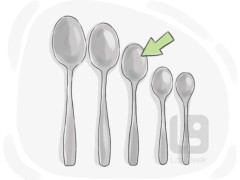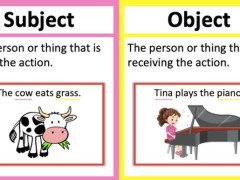noun [集合/集体]茶匙;一茶匙的量 - To keep store-bought flowers fresh, snip an inch off each stem, add two teaspoons of vodka and one teaspoon sugar.
noun [物质名词]药物,药剂;医疗,医学;内科;(北美印第安人等民族所信奉的具有治疗或保护效力的)咒语,魔法 - Medicine is a substance that you drink or swallow in order to cure an illness.
verb [vi. 不及物动词]用药物治疗,给…用药 - Research into LSD is not confined to medicine.
verb [vt. 及物动词]担心,发愁;使担忧,使发愁,使焦虑;烦扰,使不安宁;(狗)追赶,撕咬(其他动物) - If someone or something worries you, they make you anxious because you keep thinking about problems or unpleasant things that might be connected with them.
noun [抽象名词]令人担忧的事,令人发愁的问题;担心,忧虑 - Worry is the state or feeling of anxiety and unhappiness caused by the problems that you have or by thinking about unpleasant things that might happen.
Don't worry: 不要担心
- Don't worry, everything will be fine. (不要担心,一切都会好的。)
Worried sick: 极度担忧
- I've been worried sick about my missing keys. (我为我的丢失的钥匙担心得要死。)
Worried about: 担心...
- I'm worried about her safety while traveling alone. (我担心她一个人旅行时的安全。)
Constant worry: 持续担忧
- She lives in a constant state of worry. (她一直处于持续的担忧状态。)
Worrying trend: 令人担忧的趋势
- The increasing pollution levels are a worrying trend. (污染水平的上升是一个令人担忧的趋势。)
Worry oneself: 使自己担忧
- Don't worry yourself too much over things you can't control. (不要过于为无法控制的事情烦恼。)
Worry-free: 无忧无虑的
- I love going to the beach because it's so worry-free. (我喜欢去海滩,因为那里无忧无虑。)
Worrying signs: 令人担忧的迹象
- The decreasing sales numbers are worrying signs for the company. (销售数量的减少是公司的令人担忧的迹象。)
Worry beads: 念珠(用于舒缓焦虑的小物件)
- Some people use worry beads to help reduce anxiety. (有些人使用念珠来帮助减轻焦虑。)
Let go of worries: 放下烦恼
- It's important to learn how to let go of your worries and live in the present. (学会放下你的烦恼、活在当下非常重要。)
adjective [原级]感到饿的,饥饿的;渴望的,热望的;使人饥饿的,引起食欲的;不毛的,贫瘠的 - If you say that someone is hungry for something, you are emphasizing that they want it very much.
adjective [原级]晚期的,末期的;晚的,迟的;近日暮的,近深夜的;已故的;不久前的,最近的 - The train was 40 minutes late.
adverb [时间副词]晚,迟;(时间上)接近终了,在晚年;临近日暮,接近午夜;(时间上)接近终了,临近末了,在晚年 - She's late for work every day.
noun [专属名词]正餐,晚餐;晚宴,宴会;速食饭,方便饭 - Shall we have trout for dinner?
noun [抽象名词]不寻常的事件,意外之事;惊奇,惊讶;令某人意外惊喜的事物(如礼物、旅行等);出其不意(出人意料)的方法;让人大吃一惊的人;(鸣钟术)一种复杂的敲奏编钟的方法 - I have a surprise for you: We are moving to Switzerland!
verb [vi. 不及物动词]使(某人)吃惊;意外发现,当场抓获,突然袭击;给…惊喜,使喜出望外 - We'll solve the case ourselves and surprise everyone.
adjective [原级]令人惊奇的,意外的 - Baxter arrived here this afternoon, on a surprise visit.
noun [专属名词]意大利面食;面团 - She dug into her bowl of pasta.
adjective [原级]美味的,芬芳的;令人愉快的,宜人的 - There's always a wide selection of delicious meals to choose from.
noun [专属名词](正餐后的)甜点 - She had homemade ice cream for dessert.
noun [专属名词]香草精,香子兰精;香草冰淇淋;香草冰淇淋色,浅奶黄色;香子兰,香果兰,香夹兰 - I added a dollop of vanilla ice cream to the pie.
adjective [原级]香草味的;无特色的,普通的 - The vanilla gives off a nice smell.
noun [抽象名词]勺,球形勺;铲,铲斗;<非正式>(抢先报道的)独家新闻;<美,非正式>(尤指私人的)最新内幕(the scoop);一勺,一铲斗(的量);舀的动作,铲的动作;(唱歌中)夸张的上滑音 - A scoop is an object like a spoon which is used for picking up a quantity of a food such as ice cream or an ingredient such as flour.
verb [vt. 及物动词]用勺舀,用铲子铲;挖出,挖空;(急速地)捡起,抱起;<非正式>抢先报道(新闻);<非正式>赢得(金钱、奖品或胜利纪念品);(唱歌)使用夸张的上滑音作为曲调的前奏 - If you scoop a person or thing somewhere, you put your hands or arms under or around them and quickly move them there. (
verb [vt. 及物动词](为…)工作,服务;提供,端上(食物); 接待,服务;供应,提供;服(刑),当(学徒) - If you serve in a particular place or as a particular official, you perform official duties, especially in the armed forces, as a civil servant, or as a politician.
① vt.&vi. 帮佣,当仆人,给……干活
serve sb. 为某人而服务
- Mary served (in) the family as a cook for more than ten years.
②vt.&vi. 服务;服役;供职
- She served the firm as a secretary for two years.
- Have you ever served in the army?
③ vt.&vi. 接待(顾客)
- The assistant was eager to serve her this time.
- Tom served in a restaurant when he was 18.
- We must serve the people heart and soul. 服务
- Do they serve beer? 提供
- The waiter is serving another customer. 接待
提供服务或为...服务:
- The waiter is serving us at the restaurant.(服务员正在餐厅为我们提供服务。)
- She serves as a nurse in a local hospital.(她在当地医院担任护士。)
为...提供食物或饮料:
- Can I serve you some coffee?(我可以给您倒杯咖啡吗?)
- He served dinner to his guests.(他给客人端上晚餐。)
担任特定职能或角色:
- He served as the CEO of the company for five years.(他担任该公司的首席执行官达五年之久。)
- She served as a judge in the court.(她在法庭上担任法官。)
为......做出贡献或服务:
- He served his country in the military.(他在军队中为国家服务。)
- She dedicated her life to serving the underprivileged.(她致力于为弱势群体服务,贡献了自己的一生。)
上菜,端盘:
- The chef served the dish with a garnish.(厨师将菜肴搭配装饰品上桌。)
- She served the cake on a beautiful plate.(她将蛋糕盛在一个漂亮的盘子上。)
发球(在某些体育运动中):
- He served a powerful tennis serve.(他发出了一记有力的网球发球。)
- The player served the ball into the opponent's court.(运动员把球发到对手的场地里。)
总结起来,"serve" 可以表示提供服务、担任职务、为某人提供食物或饮料、做出贡献等。具体使用哪种含义要根据上下文和语境来确定。
noun [专属名词]电影,影片;电影艺术,电影业;胶卷,底片;薄膜,薄层;纪实镜头,记录画面;<古>细丝 - A film of powder, liquid, or oil is a very thin layer of it.
verb [vi. 不及物动词]录制,拍摄电影;(似)被覆盖上一薄层东西,变得朦胧;在…上覆以薄膜 - If you film something, you use a camera to take moving pictures which can be shown on a screen or on television.
verb [vt. 及物动词](使)翻滚,滚动;(使)翻身,翻转;行驶,开动;(机器)转动,运转;(液体)滚落,滑落;使…成球状(或管状);使平坦,压平;把(衣服的边)卷起来;(使)摇摆,摇晃;(使)原地转圈,翻白眼;摇(车窗),卷(窗帘等);发出持续的声音;(时间)流逝;(产品)从(流水线,机器)产出;<非正式>盗窃;连获成功 - If you roll somewhere, you move on a surface while lying down, turning your body over and over, so that you are sometimes on your back, sometimes on your side.
noun [具体名词]卷,卷轴;卷状食品;赘肉,肥肉;名单,花名册;一管;滚动,翻滚;左右摇晃,振荡(rolling stone 漂泊的人);隆隆声,轰轰响;掷骰子;压路机,辊轧机;(地形的)延绵起伏 - A roll of paper, plastic, cloth, or wire is a long piece of it that has been wrapped many times around itself or around a tube. (
noun [具体名词]东西,物品;基本特征,特质,根本;<非正式>(某人从事的)活动,事情;<非正式>原材料;投球能力;<非正式>作品,乐曲,艺术;胡说八道,废话,荒谬的想法;<非正式>饮料,毒品;<英,旧>毛料,呢绒 - I'd like some coffee, and I don't object to the powdered stuff if it's all you've got.
verb [vt. 及物动词]塞进,填进;填满,装满;填作料,填馅;制作(动物)标本;<非正式>(使)吃撑,吃足;不稀罕,不在乎;<非正式>把同样的印刷品装进(信封);<美>把伪造选票投入(票箱);<英,俚>性交(一个男人和一个女人性交) - If you stuff something somewhere, you push it there quickly and roughly.
noun [专属名词]渡船 - This neighbour crewed on a ferryboat.
adjective [原级]高兴的;感激的;乐意的,非常愿意的;令人愉快的,充满欢乐的 - The people seem genuinely glad to see you.
verb [vt. 及物动词]<古>取悦,使高兴 - I'm glad that you're over the flu.
verb [vt. 及物动词]介绍,引见;使初次了解,使尝试;为(电视或广播节目)做开场白,主持;实施,推行;首次引入(某物),使传入;使开始,创始;将(法案)提交讨论;将…放进,添入 - MGM introduced a new system for hiring writers.
verb [vt. 及物动词]显示,表明;给…看,出示;(通过示范)教,解说;指给某人看,指出;带领,引领;(情感、品质等的)流露,表露;(对某人)表现出,对待;显示出,流露出;容易显出,容易看到;标示,表明(信息、时间、计量);描绘,表现(为);放映,播出;展示,展出;<非正式> 证明,表明;如约赶到,露面 - Show me which picture you drew.
noun [抽象名词]演出,歌舞表演;(电视或广播)节目;展览,展览会;(体现内心感受的)动作,行为;装出的样子,虚假的外观;鲜艳悦目的景象;<非正式> 事情,场面;<非正式> 表现;动物比赛;场面,场合;<非正式> 滑稽场面,洋相;(分娩或月经时的)见红,现血,血先露;<非正式> (做某事的)机会,时机 - Research shows that young people still look to parents as their main source for health information.
noun [专属名词]照片 - Let's take a photo!
verb [vi. 不及物动词]拍照 - She clasped the photo to her heart.
noun [抽象名词]困难,难题,苦恼;险境,困境;费事,不便;问题,麻烦,缺陷;(机器、车辆或系统的)故障,毛病;动荡,骚乱;疾病,疼痛;需劳神费力的人(或动物);内战,动乱时期(the Troubles) - Are you causing trouble again?
verb [vi. 不及物动词]使忧虑,苦恼;费神,费力;劳驾,麻烦;给…造成麻烦(困难);折磨,使疼痛 - You've caused us a lot of trouble.
① n. 麻烦
- I'm sorry to put you in trouble. 我很抱歉给你带来麻烦(口语)
ask for trouble 自找麻烦
- He is asking for trouble.
have trouble in doing sth. 在做……时遇到麻烦(书面语)
- I have trouble (in) parking the car.=I have a lot of trouble parking the car.
② v. 麻烦
- Woman/Man/Child troubles. 女人/男人/孩子真麻烦。
- Never trouble troubles until troubles trouble you. 永远不要自寻烦恼
- Let sleeping dog lie. 不要自找麻烦 (let sb. do sth.)
adjective [原级]容易的,不费力的;舒适的,自如的;随和的;轻浮的;平缓的 - If you describe an action or activity as easy, you mean that it is done in a confident, relaxed way.
adverb [程度副词]小心;容易地,悠闲地 - They talked amiably and easily about a range of topics.
verb [vi. 不及物动词]停留,逗留;保持原状,维持;坚持;(到访或作客时)留宿,暂住;不去,远离某地;避开,不参与(麻烦或不利局面);停止,延期,延缓;<文>控制,中止,抑制;<苏格兰>定居;暂时解除(饥饿);用支索支撑(桅杆),用牵索固定;<文>支持,支撑 - You can stay here if you like.
noun [抽象名词]暂住,逗留;<法律>(审判的)推迟,延缓;(船桅的)支索,(杆子等的)牵索,撑条;(衬衫衣领的)撑条;<文>控制,中止,抑制;<史>胸衣,紧身褡,紧身背心;支撑物,稳固物;(飞机的)拉杆,拉索 - When is Nanny coming to stay?
stay + at
- stay at the hotel.
stay + in
- stay in New York.
noun [抽象名词]主题,话题;学科,科目,课程;主语;(绘画、摄影等的)主题,题材;实验对象;(批评、学习、调查的)对象;国民;起因;(逻)主词,主项,主概念;(乐)主旋律;(哲)主体,主观;中心实体 - It was I who first raised the subject of plastic surgery.
verb [vi. 不及物动词]使臣服,征服,压服;使经受,使遭受 - ...the man who had subjected her to four years of beatings and abuse. …
adjective [原级]隶属的,臣服的;可能受…影响的,易遭受…的;受…支配的,服从于…的;取决于,视…而定 - The tribunal is unique because Mr. Jones is not subject to the normal police discipline code.
noun [专属名词]生物学;生命机理,作用方式;生理习性;(某个地区的)生物 - The biology of a living thing is the way in which its body or cells behave. (
noun [抽象名词]数学;数学运算 - He tutors students in mathematics.
noun [专属名词]儿科医生(paediatrician 的美式拼写) - Playing with digital devices discourages kids from active discovery, according to pediatrician Dr. Michael Yogman.
noun [专属名词]律师 - I should like to call my lawyer.
verb [vi. 不及物动词]从事法律工作,当律师;(律师)处理法律事务 - He is a Harvard-educated lawyer from Miami.
noun [专属名词]救助,搭救;避免,减少;积攒,储蓄;节省(钱、时间或其他资源);保存,保留;收集;(为某人)保留;(计算机)保存(数据);使健康长寿,护佑;(足球等)救球,防止对方进球;(棒球)(替补投手) 保持(其他投手取得的领先地位);(基督教)拯救(某人),使摆脱罪孽 - The goalie made some great saves.
verb [vi. 不及物动词](足球等守门员的)救球;(棒球)(替补投手) 保持(其他投手取得的领先地位);(计算机)存储数据 - The meeting is an attempt to mobilize nations to save children from death by disease and malnutrition.
preposition [位置和方向]<正式> 除……之外 - Julie wanted to put some of her money aside for holidays or save up for something special.
① vt. 挽救,救助,拯救
save one's life
- The doctor saved the child’s life. They saved the child from the fire.
save one's face 挽会面子
② vt. 积蓄,储蓄
- He used to save letters. save money 存 钱
- He saved (money) for years to buy a car.
西方人不喜欢提钱, 所以用 save up 表示存钱
- I have saved up for many years. 我已经存了好几年的钱
- Save it for a rainy day. 未雨绸缪, 为将来需要而做好准备
- save time 节省时间:利用有效的方法或手段来减少所需的时间。
- save the game 保存游戏(存档)
verb [vt. 及物动词]忘记;轻忽;遗漏(forget 的过去式) - Neither of us forgot about it.






























